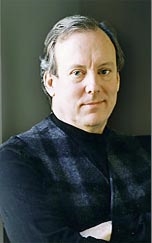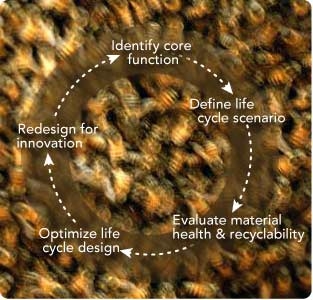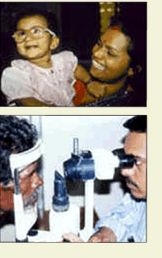 |
| William A. McDonough |
It was March, 2004, in Montreal, Quebec and MyHero was front row, center to hear William McDonough speak to the NAIS, the largest association of independent schools in North America. Standing at the podium before a packed auditorium of educators, McDonough leaned into the microphone and said, "Listen." In the moment of silence that followed, everyone in the audience heard the hum of the central air, the buzz of the lights far above. "The sun is trying to shine in here." And it dawned on everyone in attendance that while we were sitting there talking about global warming and nuclear isotopes, we were also contributing to them by heating and lighting the mammoth building in which we sat. It wasn't our plan to show up for his lecture and simultaneously contribute to global warming, but that's what we were doing.
"It's too late for us not to take responsibility for our daily actions because if we say that we didn't intend for them to happen, and say they're not part of our plan, then they're part of our de-facto plan. They're the thing that's happening because we have no other plan." It was plain to see that "de-facto" planning isn't part of McDonough's designs.
"Let me just put this in front of you for your consideration. The President of the United States has asked that the clean air regulations, especially where it's related to mercury and coal-fired plants, the largest releasers of mercury in North America, that those stringent regulations be not just enforced over a longer period of time, but actually relaxed. If you're educators, how thrilled are you at the prospect that your charges have been laden with neuro-toxins on their way to your fine institutions. Is this part of our strategy? Is our hope that our children can be educated broadly and wisely have any relationship to the idea that we would release neuro-toxins into their environment? If someone took mercury and poured it into New York's water system and contaminated it and subjected all of New York's citizens to neuro-toxins, we would call this eco-terrorism. And yet what our federal government has just done is so much more massively promulgating mercury than that event. We have to wonder; how does one define terrorism? How does one define eco-toxicity? How does one define leadership? What is homeland security anyway?"
 |
| "...CRADLE TO CRADLE DESIGN INCLUDES THE EVALUATION AND OPTIMIZATION OF ALL CHEMICAL AND MATERIAL INPUTS THROUGHOUT PRODUCT LIFE CYCLES...." http://www.greenblue.org/ |
It's this kind of short-sightedness that most readily draws McDonough's ire. He calls it "Generational tyranny" - the landfill our grandchildren will have to clean up, the global warming that's not yet our problem. "We have had this mistaken belief system that natural resources can be used and abused forever. We have to honor that - that's what we used to do then. What are we going to do now?" And unlike many critics of today's world, McDonough dares to tell us what we can do; not just in the complex world of renewable resources and design but in setting long-term, global goals to shape our intentions:
"We hope for a delightful, |
| Aravind Eye Hospital in India |
In William McDonough's world, old carpeting is used as mulch for the garden; today's corporate headquarters become tomorrow's homes; polymer newspapers are infinitely recyclable; and the concept of waste is completely eliminated. In his world we create equitable economic systems that work for everyone. As an example, he cited the Aravind Eye Hospital in India. Aravind has provided eye surgery for millions of people based on their ability to pay, resulting in over a million free treatments. Another example of an equitable economic system is offered by Dr. David Green, a hearing specialist who has been able to manufacture conventional $1,600 hearing aids for roughly $40. Dr. Green sells them for $250 a piece, then gives three of the hearing aids to children… for free.
As evidenced by his lecture to the National Association of Independent Schools, McDonough's ideas about design that takes nature and future generations into account are thoughtfully conceived and passionately presented - things you might expect from the Dean of the School of Architecture at the University of Virginia. A little more unexpected from a life-long scholar like McDonough was the question he posed to a group of educators on a dreary Montreal afternoon in March:
"How do we love all of the children of all species for all time?"
In William McDonough's world, it's all part of the design.
Page created on 7/2/2004 7:38:50 AM
Last edited 7/2/2004 7:38:50 AM
